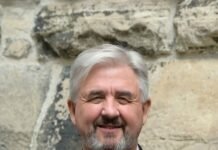Twelve months ago, Archbishop Foley Beach asked me to chair a taskforce to develop a pastoral statement on same sex attraction and identity, with a focus on the theological language that might be employed within our provincial ministries regarding this attraction.
The spiritual and theological battle regarding Christian identity is as furious as it has ever been. The confusion regarding identity creates a storm and ensuing fog that has infiltrated the church and is currently bringing stunning confusion, especially to our next generation of youth.
Over the past 12 months, in addition to the episcopal voices of the province, 20 additional contributors and editors have been involved in the formation of this statement. These contributors include a diverse platform of men and women, theological scholars, ministry practitioners, lay people, deacons and priests. We engaged conversations with two published evangelical psychologists with particular expertise in the area of sexuality. Finally, we were intentional to listen carefully to Next Gen Leaders in our movement who do not all agree with one another on the complex issues pertaining to same sex attraction and identity.
We have sought to be clear, because it is the commitment of our task force and the College of Bishops that language deeply does matter. It is our conviction that while this may seem a small skirmish amidst the increasingly loud challenges in our day, Christian identity and language is ground that strategically identifies core Gospel matters like biblical anthropology.
This Pastoral Statement was approved by the College of Bishops at our January 2021 meeting, and can be found here Statement from the College of Bishops.
Now may our Lord Jesus Christ himself, and God our Father, who loved us and gave us eternal comfort and good hope through grace, comfort your hearts and establish them in every good work and word. 2 Thessalonians 2:16-17 (ESV)
On behalf of the task force,
The Rt Rev. Stewart Ruch III
Bishop, Anglican Diocese of the Upper Midwest




Incredible: “The spiritual and theological battle regarding Christian identity is as furious as it has ever been. ”
I suppose that is true. Why might that be? Is it because the Church is afraid to preach the truth in this matter. If we proclaim to be followers of Jesus Christ then He is our new identity.
Try preaching that for about 10 years and note the difference. Of course they won’t do that because they fear the “numbers would go down”. Yes they might, but then that means you prefer a Church full of nominal Christians.
Our parish (and most of our diocese) seems pretty settled on biblical truth in these matters. Evangelical psychologists no doubt have their place, but our elders (presbyters) do a jolly good job of pointing out what the Scriptures say. I can’t help wondering how people ever worked out what the Bible says about lust and marriage and so on before we had all these modern aids (no pun intended) and discussions and reports.